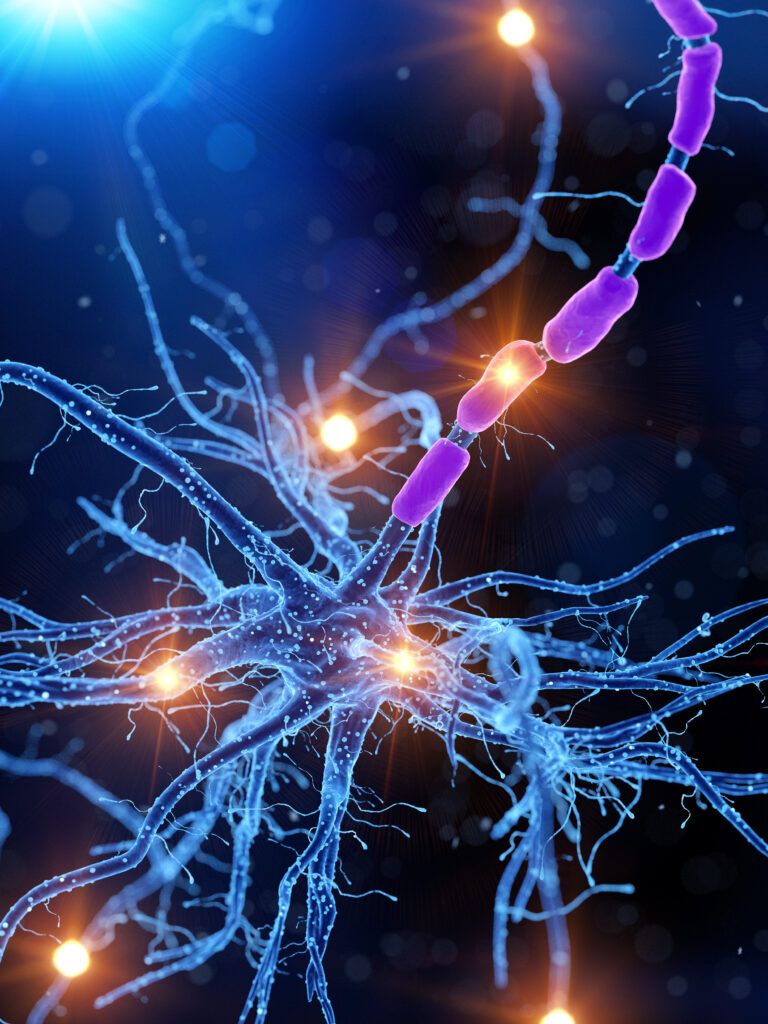**Exploring the Role of Targeted Molecular Therapies in Alzheimer’s Disease**
Alzheimer’s disease is a complex and debilitating condition that affects millions of people worldwide. Despite significant research, there is still no cure for Alzheimer’s, and current treatments often focus on managing symptoms rather than addressing the underlying causes of the disease. However, recent advancements in molecular therapies offer promising new avenues for treating Alzheimer’s.
### Identifying Therapeutic Targets
One of the key challenges in developing effective treatments for Alzheimer’s is identifying the right targets. A recent study used comprehensive bioinformatics methods and machine learning algorithms to identify potential therapeutic targets for Alzheimer’s disease[1]. The study focused on five hub genes—PLCB1, NDUFAB1, KRAS, ATP2A2, and CALM3—which were found to be significantly correlated with the progression of Alzheimer’s. PLCB1, in particular, showed the highest diagnostic value and was linked to neuronal expression and Braak stages.
### Focused Ultrasound Therapy
Another innovative approach to treating Alzheimer’s involves using non-invasive focused ultrasound. A clinical trial published in the _Journal of Neurosurgery_ demonstrated the safety and efficacy of using focused ultrasound to reduce amyloid plaques in the brain, a hallmark of Alzheimer’s disease[2]. This method involves opening the blood-brain barrier (BBB) using low-intensity focused ultrasound, which allows therapeutic agents to reach the affected areas of the brain more effectively. The study showed significant improvements in neuropsychiatric symptoms associated with Alzheimer’s, such as delusions, agitation, and anxiety, without the need for medication.
### Gene Therapy and Pharmacogenetics
Gene therapy and pharmacogenetics are also being explored as potential therapeutic strategies. A research project at the Autonomous University of Barcelona aims to activate neural circuits and ameliorate pathology in Alzheimer’s disease using pharmacogenetics and gene therapy approaches[4]. The project focuses on identifying key molecular mechanisms involved in disrupting pathologically affected neural circuits and how their modulation can reverse or ameliorate memory loss.
### Biomarkers and Machine Learning
Biomarkers and machine learning models are also being used to predict early Alzheimer’s disease. A study presented at the Texas Alzheimer’s Research and Care Consortium used ATN plasma biomarkers and machine learning models to predict early Alzheimer’s among high-risk cohorts[3]. This approach could help in early diagnosis and intervention, potentially slowing down the progression of the disease.
### Other Therapeutic Approaches
Several other therapeutic approaches are being investigated, including targeting amyloid proteins, tau tangles, inflammation, and vasculature. Clinical trials are ongoing to test the safety and efficacy of various drugs, such as lecanemab and donanemab, which target amyloid beta and have shown potential in reducing its levels and slowing cognitive decline[5]. Additionally, trials focusing on reducing inflammation using immunomodulators like baricitinib and low-dose interleukin-2 immunotherapy are also underway.
### Conclusion
The exploration of targeted molecular therapies in Alzheimer’s disease offers a promising future for treatment. By identifying specific genetic targets, using innovative techniques like focused ultrasound, and applying gene therapy and pharmacogenetics, researchers are making significant strides in understanding and addressing the complex mechanisms of Alzheimer’s. These advancements not only provide new hope for patients but also underscore the importance of continued research into this debilitating condition.
As the scientific community continues to explore these new avenues, it is crucial to support ongoing clinical trials and research initiatives. By doing so, we can accelerate the development of effective treatments and ultimately improve the lives of those affected by Alzheimer’s disease.





